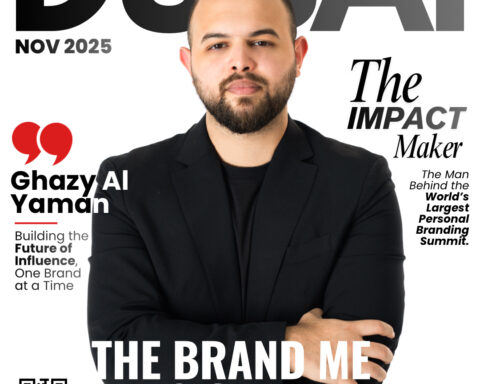Exploring the Urgent Need for Awareness and Support in Men’s Mental Health
Robin Williams. Kurt Cobain. Stephen “Twitch” Boss. Anthony Bourdain. Lee Sun-kyun. All these are household names, but beyond their talent, fame, and success, what else did these men share? Each of their lives ended in apparent suicide. These devastating losses shine a light on a crucial and urgent conversation about men’s mental health and the importance of awareness.
The Pressure to Push Through
Many men believe that expressing emotions undermines their masculinity, making them appear less strong, aggressive, or confident. However, data from the CDC reveals that men are about four times more likely to die by suicide than women, emphasizing the urgent need for a shift in perspective. From an early age, men are often taught to suppress pain, viewing the act of seeking help as a sign of weakness. The men I see in clinic almost always come in reluctantly at first, until they recognize the supreme benefits of support.
Despite growing awareness of men’s mental health, the stigma surrounding help-seeking remains entrenched.
Case Study: John’s Journey
John, a 42-year-old father of three, began experiencing severe stress and anxiety following the sudden loss of his father. He took on the burdens of estate administration while supporting his grieving mother and sister, all while managing his own grief. Despite the emotional toll, he hesitated to seek help, fearing it might make him look “soft.”
“I kept convincing myself that I’d handle it on my own,” John confesses. “Admitting that I was struggling felt like I would no longer be the strong person everyone depended on.”
Months of sleepless nights and panic attacks strained his marriage and family life, ultimately forcing him to seek help. It wasn’t until he was on the verge of burnout—overwhelmed by responsibilities at work and home—that he realized the cost of ignoring his mental health had become too great.
John’s story is far from unique. His experience reflects a familiar pattern among men who avoid addressing their emotional pain until it severely impacts their lives and families.
The Damaging Costs of Ignoring Help
- Increased Risk of Mental Health Deterioration:
Issues like depression, anxiety, and PTSD worsen if left untreated. Isolation and emotional suppression magnify negative feelings, leading to a heightened risk of burnout and, in some cases, suicidal thoughts.
- Higher Incidence of Substance Abuse:
Men who avoid seeking help often turn to substances like alcohol or drugs as coping mechanisms. This can hide mental health issues but ultimately exacerbates them and increases impulsivity—a key risk factor for violence and suicide.
- Relationship Strain and Social Isolation:
The avoidance of help can strain relationships, resulting in loneliness and isolation, further perpetuating depression and potentially generating violent tendencies.
- Work and Financial Stress:
Mental health struggles can harm work performance, leading to job loss, financial stress, and a diminished sense of self-worth, adding extra distress for men who feel the pressure to fulfill the provider role.
- Physical Health Risks:
Mental health impacts physical well-being, resulting in higher rates of hypertension, heart disease, and other stress-related conditions, creating a cycle of declining health.
Practical Steps Towards Support
- Prioritize Mental Health:
Finding safety in expressing emotions is crucial. Opening up to a friend or seeking professional help can be transformative. Activities like journaling, joining support groups, or engaging in creative outlets can help safely release emotions.
- Adopt Healthier Coping Mechanisms:
Replace harmful habits with stress-relief activities such as exercise, meditation, or mindfulness. Joining or creating support groups can foster community and accountability.
- Strengthen Social Connections:
Building a support network through group activities or clubs combats isolation. Relationship counseling can also be beneficial for men facing family or marital challenges.
- Manage Work and Financial Stress:
Advocating for workplace support like mental health days and stress management workshops can foster a more supportive environment. Financial guidance can ease pressure related to being the provider.
- Stay Physically Healthy:
Annual health screenings are essential for early identification of stress-related issues. Embracing a holistic approach to wellness through exercise, nutrition, and stress management is critical for overall health.
The Role of Women: Supporting Your Man
Life is hard, and men face unique pressures to appear strong, even when struggling. Women can play a vital role in supporting their men by:
- Creating a safe space for open conversations.
- Encouraging honest discussions about feelings.
- Listening without judgment and offering empathy.
- Gently reminding him that seeking help is a courageous choice.
- Acknowledging his efforts in managing his well-being.
- Telling him he is seen, appreciated, and valued.
Sometimes, simply telling him you’re proud of him—even if you’re unsure if he’s struggling—can make a world of difference and may even save his life. Together, you can navigate life’s challenges, building strength and resilience as a team.
Redefining Strength: A Note to Men
True strength lies in recognizing challenges and seeking support to maintain control over your life. Asking for help is a proactive step, akin to regular maintenance for a car. Start small—talk to a trusted friend or family member to lighten the load. Finding a mentor or professional help can be transformative, providing guidance and privacy.
Educate yourself on mental and physical health. Listen to advocates like Michael Phelps and Trevor Noah, who emphasize that even the strongest benefit from support and openness. Remember, your well-being impacts family, friends, and colleagues. Embrace self-care as a new form of strength. Seeking help affirms your humanity and empowers you to live your best life.




















